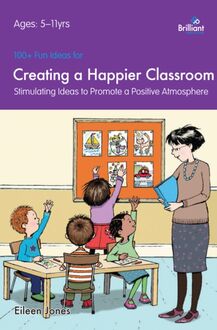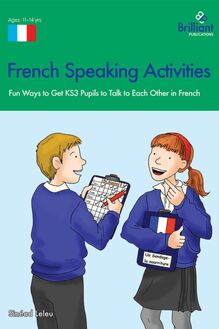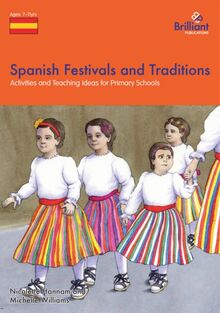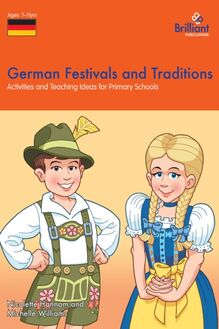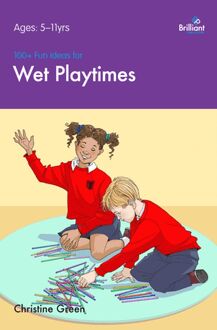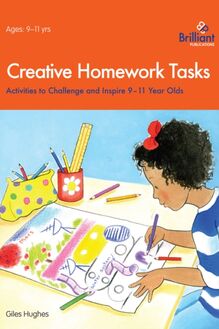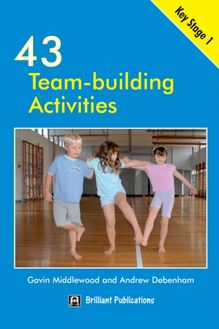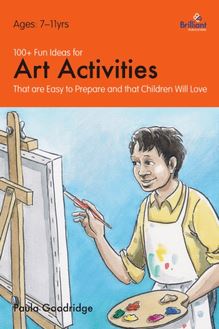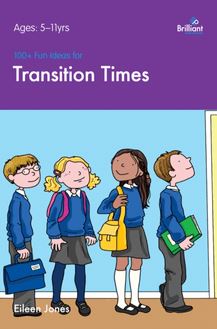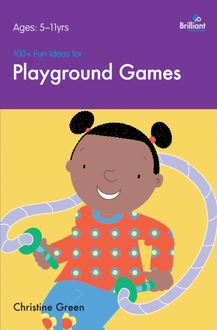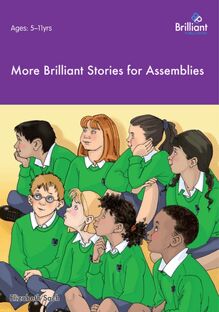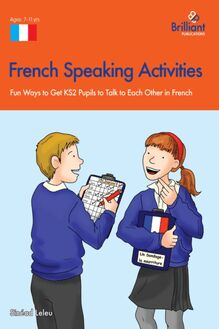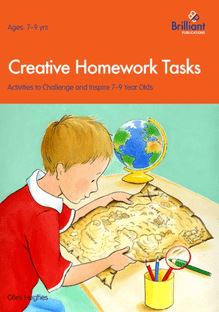German Festivals and Traditions , livre ebook
114
pages
English
Ebooks
2013
Vous pourrez modifier la taille du texte de cet ouvrage
Obtenez un accès à la bibliothèque pour le consulter en ligne En savoir plus
Découvre YouScribe en t'inscrivant gratuitement
Découvre YouScribe en t'inscrivant gratuitement
114
pages
English
Ebooks
2013
Vous pourrez modifier la taille du texte de cet ouvrage
Obtenez un accès à la bibliothèque pour le consulter en ligne En savoir plus
Publié par
Date de parution
23 janvier 2013
Nombre de lectures
2
EAN13
9780857475558
Langue
English
Publié par
Date de parution
23 janvier 2013
Nombre de lectures
2
EAN13
9780857475558
Langue
English
Title page
German Festivals and Traditions
Activities and Teaching Ideas for Primary Schools
Nicolette Hannam and Michelle Williams
Copyright page
We hope you and your pupils enjoy learning about the festivals and traditions in this book. Brilliant Publications publishes many other books for teaching modern foreign languages. To find out more details on any of the titles listed below, please log onto our website: www.brilliantpublications.co.uk.
Published by Brilliant Publications
Unit 10
Sparrow Hall Farm
Edlesborough
Dunstable
Bedfordshire
LU6 2ES, UK
General information enquiries:
Tel: 01525 222292
The name Brilliant Publications and the logo are registered trademarks.
Written by Nicolette Hannam and Michelle Williams
Illustrated by David Benham
Front cover designed by Brilliant Publications
© Text Nicolette Hannam and Michelle Williams 2009
© Design Brilliant Publications 2009
First printed and published in the UK in 2009
The right of Nicolette Hannam and Michelle Williams to be identified as the authors of this work has been asserted by themselves in accordance with the Copyright, Designs and Patents Act 1988.
The publishers and authors would like to thank Michaela Greck-Ismair for her very careful reading of the manuscript and useful comments.
Dedication
In memory of my lovely mum, Pauline Cranfield.
Michelle Williams.
Introduction
This book was written by a secondary and a primary school teacher to provide information about festivals and traditions in Germany.
Every month has ideas that support the intercultural strand of the Framework for Modern Foreign Languages . According to the Framework by the end of Year 6, most children should be able to: Demonstrate an understanding of and respect for cultural diversity Present information about an aspect of another country.
The ideas in this book can be used to develop discussions about comparisons. The Framework suggests comparing attitudes towards aspects of everyday life (IU6.1) and understanding differences between people (IU6.2).
It then suggests children present information about an aspect of culture through a wide variety of media. By regularly using ideas from this book you are providing your pupils with a wealth of ideas.
Each month has a choice of guided sheets. There is also a variety of suggested teaching activities, with vocabulary provided. Extension ideas are provided for more able pupils.
Running a German Day (see Planning a German Day for your School) will complement your intercultural teaching and provide children with many opportunities to achieve a high standard in this area of German. The German vocabulary provided will support and reinforce your language work alongside this.
There are two analysis grids that show how and where the book covers the intercultural strand. The first is split into year groups and shows where you can find work to cover the objectives for your own year group. The second grid looks at each strand and shows where it is covered in the book. This will be extremely useful for MFL co-ordinators.
Analysis by year group
Year group
Objective
Covered in book
3
Identify other languages they’d like to learn
Planning a holiday
Learn where German is spoken
Planning a holiday
Know some facts about one country
Throughout book
Make contact with native speakers
Access contact through your Local Authority or the NACELL or CILT websites
Compare different cultures
Throughout book:
Viel Glück zum Gerburtstag
A typical school day in Germany
Comparing pastimes and everyday life
German song/rhyme
Weihnachten
4
Know about German celebrations
Throughout book
Identify similarities and differences in how festivals and special days are celebrated
Karneval
Valentinstag
Viel Glück zum Gerburtstag
Weihnachten
Use simple phrases to celebrate
Throughout book
Compare everyday pastimes to their own
Comparing pastimes and everyday life
Compare traditional stories
Die Märchen
5
Compare particular aspects of everyday life to their own
A typical school day in Germany
Comparing pastimes and everyday life
Exchange information with a partner school
Access contact through your Local Authority or the NACELL or CILT websites
Compare buildings and places in contrasting localities
Comparing buildings and places
Investigate ways of travelling to another country/countries
Planning a holiday
Consider how cultures of different countries are incorporated into everyday life
A typical school day in Germany
Comparing pastimes and everyday life
How is German culture incorporated into our everyday life?
Compare symbols and products
German symbols
6
Understand and respect cultural diversity (different attitudes)
How is German culture incorporated into our everyday life? - develop discussion from guided sheet
Recognize and challenge stereotypes
Challenging stereotypes
Present information about an aspect of another country:
- perform songs/plays/dramas
- use ICT to present information
- greater sense of audience
Year 6 pupils can choose one idea/topic from the book and use it to develop a PowerPoint presentation aimed at a given audience. Choose a specific festival from the book, eg Christmas or Easter, or they could do a geography presentation.
Analysis by objective
Learning objective
Covered in book
IU3.1
Learn about the different languages spoken by children in the school
Planning a holiday. Could be developed from discussions around the German language. Does anyone speak German in our school? Which other languages are spoken? Why?
IU3.2
Locate country/countries where the language is spoken
Planning a holiday
IU3.3
Identify social conventions at home and in other cultures
Viel Glück zum Gerburtstag - typical names
Social conventions addressed throughout book
IU3.4
Make direct or indirect contact with the country/countries where the language is spoken
We recommend that you approach your Local Authority for advice, or visit the NACELL or CILT websites
IU4.1
Learn about festivals and celebrations in different cultures
Throughout book
IU4.2
Know about some aspects of everyday life and compare them to their own
Throughout book, especially A typical school day in Germany and Comparing pastimes and everyday life
IU4.3
Compare traditional stories
Die Märchen
IU4.4
Learn about ways of travelling to the country/countries
Planning a holiday
IU5.1
Look at further aspects of their everyday lives from the perspective of someone from another country
Guided sheet - What I know about Germany
See also, German Day evaluation sheet
IU5.2
Recognize similarities and differences between places
Throughout book
Planning a holiday - comparing two localities
Comparing buildings and places
IU5.3
Compare symbols, objects or products which represent their own culture with those of another country
German symbols
Das Essen
Planning a holiday - develop from locality discussion
IU6.1
Compare attitudes towards aspects of everyday life
A typical school day in Germany
